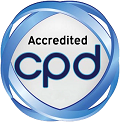Daniele Noel
INSERM, France
Title: Human adipose derived mesenchymal stem cells: A potent anti-fibrosis therapy for systemic sclerosis
Biography
Biography: Daniele Noel
Abstract
Because of immune-modulatory and trophic properties, mesenchymal stem/stromal cells (MSC) appear as a promising treatment for systemic sclerosis (SSc), a rare intractable disease with fibrosis-related mortality. While autologous approaches could be inappropriate because of alterations in SSc-MSCs, we evaluated allo- and xenogeneic approaches in the relevant hypochlorite (HOCl)-induced murine model of diffuse SSc, recapitulating the main features of the disease. Therefore, we investigated the effect of murine and human (h) MSC in the HOCl-induced SSc model. Subcutaneous fat being an accessible source of MSC, we also compared human bone marrow (BM-MSC) with adipose-derived MSC (ASC). We therefore assessed the effect of BM-MSC from syngeneic BALB/c, allogeneic C57BL/6 mice and xenogeneic hBM-MSC or hASC (3 donors each) in HOCl-challenged mice. We demonstrated that allo- and xenogeneic BM-MSC were as effective as syngeneic BM-MSC in decreasing skin thickness, expression of Col1, Col3, a-SMA and collagen content in skin and lungs. Compared with hBM-MSC, hASC induced a similar reduction in Col1 and a-SMA expression, but a stronger reduction of TNFa, IL1b, and enhanced ratio of Mmp1/Timp1 in target tissues. This therapeutic efficacy was mainly associated with paracrine activity since MSC did not migrate to the skin. Our results indicated similar therapeutic effects using allo-/xenogeneic BM-MSC while hASC displayed potent anti-inflammatory and remodeling properties. Considering heterogeneity between MSC sources and samples, potency assays are needed to optimize MSC-based therapy outcomes in SSc.

